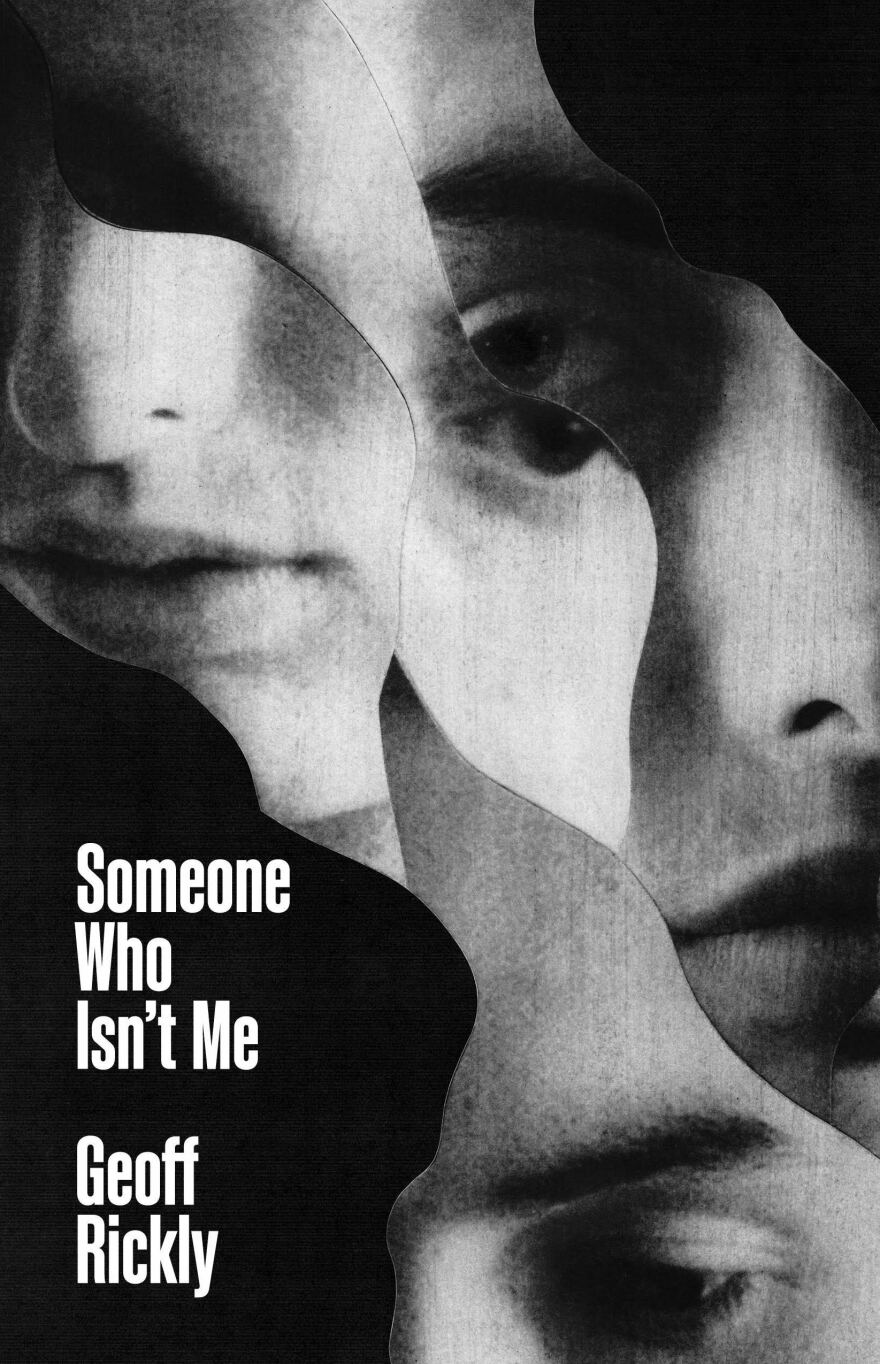While grappling with the massive ambition of Someone Who Isn't Me, the debut novel by Geoff Rickly, it's helpful to look back at the debut album by Rickly's legendary emo/post-hardcore band, Thursday. That album, Waiting, came out in 1999, when Rickly was just 20 years old. His inexperience showed: Although Waiting is an electrifying record, it's overly beholden to its obvious influences (mainly Fugazi and Sunny Day Real Estate, two of the most popular bands of those genres). Waiting also fails to fully showcase the staggering potential of Rickly as both a vocalist and a lyricist. It wasn't until Thursday's second album in 2001, Full Collapse, when it all came together. It's rightly considered a classic of its era, and it crystallized Rickly as — no hyperbole, just fact — one of the most poetic, impactful and inspirational voices of his generation.
Does that mean Someone Who Isn't Me is the literary equivalent of Waiting, a debut work that shows more promise than power? Not exactly. After all, Rickly is now in his 40s. Between Thursday and all the other bands he's fronted over the past quarter-decade, he's written the equivalent of many books, only in song form. Of course, a novel is very different from an album, and many musicians have dashed themselves against the rocks in an attempt to transfer their lyrical ability to prose. As it turns out, Rickly is solidly in the camp of successful songwriters-turned-authors such as John Darnielle and Nick Cave. When it comes to making the shift to the written word, he's a natural, albeit a germinal one.
Someone Who Isn't Me is a semifictional account of Rickly's own ups and downs as a tormented creative, a sensual being, and a heroin addict. If that sounds less than original, that's because writers such as William Burroughs and Jim Carroll perfected this type of book decades ago. (It takes all of three pages into Someone before Rickly actually name checks Burroughs.) That doesn't, however, make Rickly's addition to the canon any less vital. A saga of innerspace, the story pingpongs across years and coasts as Rickly alternately tiptoes and bulldozes through band tours, romantic relationships, and a chronicle of his real-life drug battles. He uses his own name for his protagonist, but he's wise to detach much his narrative from hard reality.
Again, there's nothing really new here, except for Rickly's singular language and force. His lyrics and vocals have always experimented with form, texture, emotion, and modes of address, so it's no surprise that Someone does the same. Passages of cut-glass sharpness dissolve into flow-state streams of consciousness. He navigates "whole city blocks compressing in accordion bellows"; he recounts how he "started a band and screamed into rusty microphones, jumping around the stage until my shoes filled with blood." Hallucinatory prose is rarely this vivid — nor does it usually bristle with the visceral punk energy that Rickly has honed throughout his career as an explosive onstage presence.
Rickly does not skimp. He writes each sentence as if it might be the last he'll ever get to pen. It's the same punch of urgency that propels every line of his lyrics in Thursday. Most often that urgency works to his advantage; occasionally it hamstrings him. He doesn't write as if his life depends on it — he writes as if his minutes are numbered and nothing can save him from death. His passages of run-on automatic writing almost always overstay their welcome, and at times so do his labored metaphors. But these are cosmetic issues; even at its most awkwardly inward, the book barrels along at the velocity of, well, a really great Thursday song.
At one point in the story, a medic at a music festival rushes onto the stage after a catharsis-chasing, self-destructive Rickly accidentally cracks his nose open with his microphone. "I'm not a doctor so I wouldn't want to rush a diagnosis," the medic tells Rickly's bandmates. "But I'd say he almost certainly shows signs of being a lead singer. It's a real shame, but there's nothing else I can do for him." Yes, there's also dark humor in Someone Who Isn't Me, and it's one of the many dimensions that helps push the novel in a daringly different direction from so many of its influences. Taken alone, Rickly's book is a solid and promising literary debut. Placed in the context of his entire body of creative work, Someone Who Isn't Me is likely to be the raw, opening salvo of a impressive new career.
Copyright 2023 NPR. To see more, visit https://www.npr.org.


